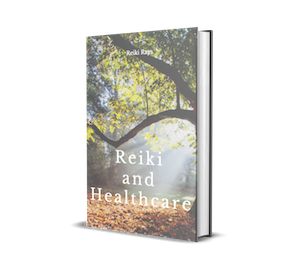Dementia is a word that encompasses several kinds of physical, brain-related diseases. Some examples of these include Alzheimer’s Disease, Vascular Dementia, and Lewy Body Dementia. There are other diseases where dementia is one of the symptoms. Memory loss related to aging is not a disease, but rather an effect of mild changes that occur in the brain over the years. There are steps we can take to delay the effects of dementia. There are several medications that can slow down dementia symptoms, in the early months of diseases. Living a healthy lifestyle also adds benefits.
Reiki can be especially helpful to people living with dementia. Many of the healing aspects of Reiki can ameliorate the disturbing effects of these diseases. The beginning changes can be the most difficult time for people with dementia. The realization that something is wrong, when they cannot remember how to pay a bill, how to find their street or a friend’s home, is frightening. They know this is more serious than just mild memory gaps due to aging. As the stress builds, the forgetfulness increases. Reiki’s ability to bring calmness to the mind and body lowers stress, enabling the brain to function as well as it can during the early stages.
Reiki is helpful in bringing more energy into the physical body. Decreasing tiredness enables the person to be more active, whether it is taking walks, doing housework, gardening, cooking, etc. Maintaining as much normalcy in one’s life as possible brings balance to one’s entire being. A common response to dementia is the feeling of losing control of one’s life. Certainly, wherever someone can exert some level of control, it is helpful – and comforting. Functioning in one’s home, while remaining safe, is a way to feel some level of control.
In the same way, agreeing to a Reiki session is a positive and safe way to deal with the disease. It is helpful to give the receiver as many choices as possible – What is his intention for session? Would he like background music? What type of music? Would she like a blanket during session? The tone of the practitioner is respectful, but not patronizing.

One of the largest issues facing a person with dementia is the loss of independence. Giving up driving or having to leave one’s home to live in a nursing home, are major losses for those living with dementia. Frequently, grief emotions are strong and painful. Reiki is always helpful in dealing with any emotional distress. In addition to giving Reiki, the practitioner can provide a listening ear and validation for these difficult losses.
Another question many people with dementia ask is “why me?” This spiritual question is one many of us have faced during our lifetimes too. Finding purpose during times of trial is comforting to all of us. Reiki can lead us to find our own answers.
As dementia progresses, there may be little, or no, conversation between the receiver and giver. However, Reiki will still be effective – even if we do not know exactly how. When the person with dementia can no longer formulate sentences or tell you what his experience of a Reiki session was, know that it was effective, in ways that supported the person. Remember – Reiki always brings healing and is a gift to all those receiving it.
Article by Deborah Lloyd, Reiki Master
Free eBook download: We’ve created an eBook with our best articles on this topic, and offer it for free to all our newsletter subscribers.


Deborah Lloyd is a Usui and Karuna Reiki® Master and certified holistic therapy practitioner, providing Distant Reiki sessions and training in Asheville, NC. Deborah is the author of two books, 22 Messages from the Archangels; and, Believe and it is True: A Story of Healing and Life Lessons. She is also one of the co-authors of Reiki 101: 101 Answers for Your Reiki Questions. Reach Deborah at [email protected] and on Facebook at Deb Lloyd Healing.





Leave a Reply